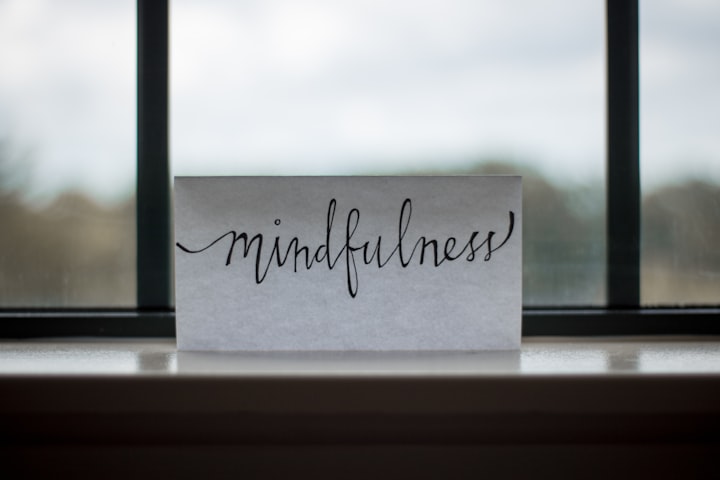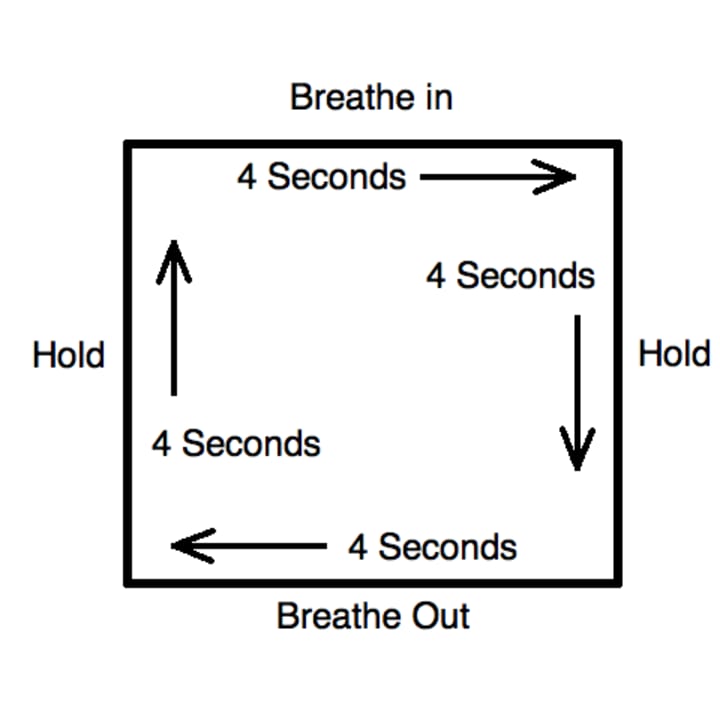Self Reassurance
Relaxation, Coping, and Hope

Sometimes we really need to think about what we can do to help ourselves first before helping everyone else around us. However, it is still somewhat helpful to do so in some instances. Because, if you do have some control over your environment; and want to make it more calming for yourself and others, then that becomes a fantastic feeling. Reason being, we are trying to gain self control. And with that goal in mind comes a lot of time and practice to try to focus on our well being. Some things that might help in this department is meditation. Over time, the brain will start to rewire itself in believing that it is in a safe environment when in fact, it may not always be the case. For example, below is an imbedded video on relaxation. Take a look at it and afterwards you might want to rethink your strategy on coping. I encourage you to take a few notes and really ponder practicing this healthy coping skill more often.
Overall, I hope that this short experience has taught you a lot about gaining more control over possible trauma, depression, anxiety, or any other troubling emotion that you were feeling. Emotions can be hard to control at times and that is absolutely okay. Remember the saying "It's okay to not be okay"? Well, although you may being overly emotional and feel useless at times, it is always helpful to remember that everything is just temporary. I when I say everything, I truly mean everything. That is why another phrase that might pop in your brain may be, "Everything can be healed with TIME". Time is the key answer to most of our everyday issues but it sometimes feels like it takes too long to tackle the more severe issues.
Next, I want to focus on your spiritual side. Some parts of the brain such as the Amygdala and the Prefrontal cortex are the primary sections that deal with anger and emotions; as well as, our spirit. The spiritual aspect may be made up the first part about our brains is 100 percent true. A great example of how the mind works is a development of a specific type of treatment. This treatment Dr. Marsha Linehan developed was called, "DBT, [which] can be useful in treating mood disorders, suicidal ideation, and for change in behavioral patterns such as self-harm, and substance abuse."(https://en.wikipedia.org/wiki/Dialectical_behavior_therapy#cite_note-ReferenceA-1).
What Dr. Marsha Linehan specializes in is Dialectical Behavior Therapy. She has true experience over me because she is a well renowned psychology researcher from University of Washington. I am just an average human being trying to develop a passion for psychology and haven't even received a degree yet; however I am familiar with DBT. This form of therapy has treated several types of diagnosis's over the years starting in the 1980's. I personally have undergone this therapy and found it a reliable source to reflect on a day to day basis. My point is, it gave me a source of hope even when I was at rock bottom. After learning and developing this therapy as a part of my routine, I got a great sense of self reassurance. A great example of this is shown in this video below; just click on the link.
https://www.youtube.com/watch?v=lDnvZS5DP68
What makes me so hopeful about this specific treatment is that the results are totally worth it. Over time you can develop skills such as mindfulness, distress tolerance, emotion regulation, and interpersonal effectiveness (Psychology Today). These are the four foundational skills that will benefit your life extremely. Also, it can be done in a structured way. This structure will regulate your emotions and help with social skills. Social skills would be an example like how we engage with others and promote effective communication.
Now, let's talk about where you would most likely find DBT. Most times it is found in one to one sessions, possibly with a therapist or different types of programs. Programs may include this: Family Therapy, In-patient, Out-patient, Residential, or one to ones. The one to ones that I am particularly speaking of is when a patient needs to be on added observation other than just being hospitalized. For example, one may start obsessively crying and saying they feel like harming themselves or others, then they would seek out additional support to be on observation by a counselor at all times; sometimes up to 24 hours or more depending on the severity of the situation. But that does not always mean that it will be that long either. It can be a shorter observation in which they just need maybe a few hours of added support.
In addition, some things to expect with DBT is working with other patients as well. These interactions blossom each other's chances to build on their skills and put them into action. In this group setting people may experience some DBT exercises. The biggest and most renowned type of exercise would be mindfulness. Naturally it can start off with breathing techniques. One of the mindful breathing techniques that I have learned over the years is four-square breathing. For this exercise, one would breath in for 4 seconds, hold their breath for 4 seconds, release for 4 seconds and then hold again for 4 seconds. All the while, they would be doing an imaginary box in the sky. A diagram of this is shown below.

Another exercise includes, Contraction and Release Breathing. This involves extending your arms out in front of you as you breath out and squeezing your arm as you inhale. The point of this is to relieve some physical stress your body may be holding in. The lactic acid that builds up in our bodies can be a big reason that we can hold onto stress so the best way to release that tension is a form of light exercise paired with the breathing. Also, any form of exercise that is not too strenuous is a great anxiety reliever as well.
Overall, these are all the things you need to know about successfully regaining self reassurance. First, through meditation, coping, and hope. That is the final recipe for any all stressful situations in my book. I invite you to learn from these possible helpful resources and lessons to regain your self reassurance. You got this!
Resources:
Chapman, AL (2006). "Dialectical behavior therapy: current indications and unique elements". Psychiatry (Edgmont). 3 (9): 62–8. PMC 2963469. PMID 20975829
Dialectical behavior therapy. Psychology Today. Retrieved March 30, 2021, from https://www.psychologytoday.com/us/therapy-types/dialectical-behavior-therapy
About the Creator
Natalie Lewandowski
Twin sister, passionate in psychology, ex-Aviation major, & LGBTQAI+ supportive!






Comments
There are no comments for this story
Be the first to respond and start the conversation.